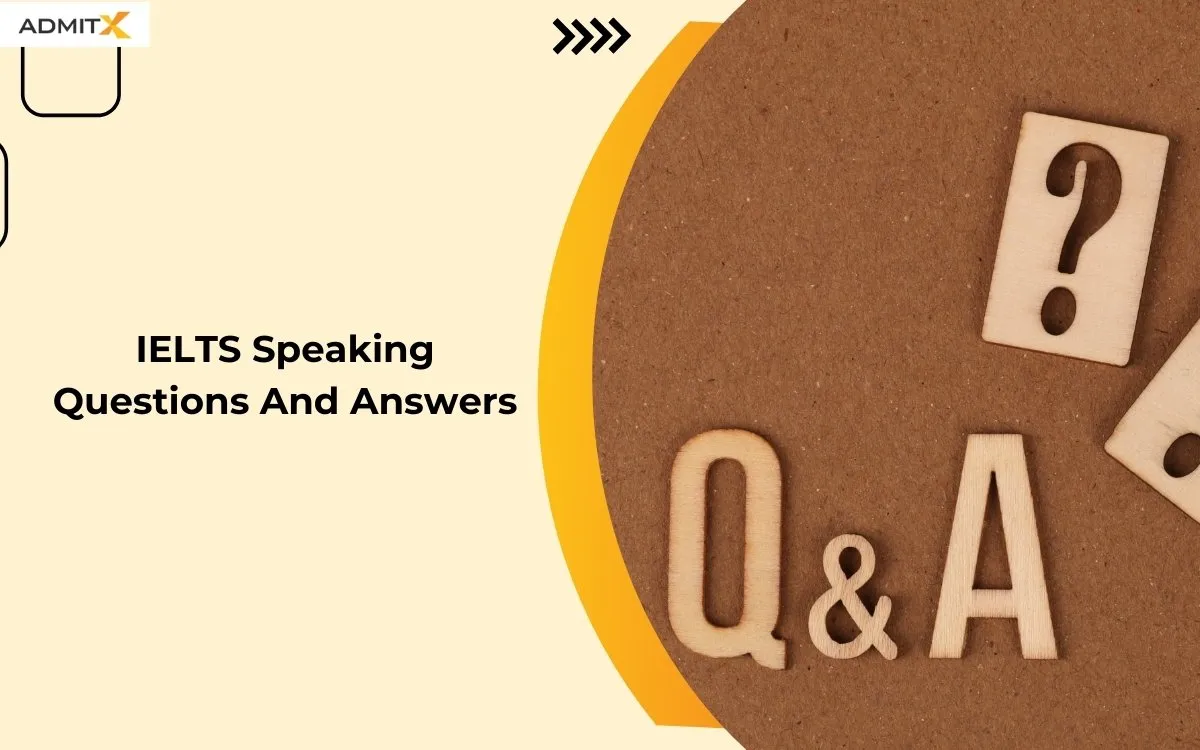
GMAT vs GRE: Key Highlights and Differences
The GMAT and the GRE are standardised tests used to evaluate applicants for postgraduate programs. Business schools ask for the GMAT score, while universities require the GRE score for different graduate programs. This GMAT vs GRE dilemma is a common one for students planning to study abroad. The best test for you depends entirely on your career goals and subject strengths.
This blog post will outline the primary difference between the GMAT and GRE and address their difficulty level.
Comprehending the distinctions between the GMAT and GRE is essential to selecting the test that most accurately showcases your skills and aligns with your objectives.
Key Highlights of GMAT and GRE
Many potential MBA applicants need help deciding which exam to take for entry into business school. Now that both the GMAT and GRE have been shortened, we should analyse the differences between the GRE and GMAT and determine which is preferable for your graduate program:
| Parameter | GMAT Focus Edition | GRE |
|---|---|---|
| Full Form | Graduate Management Admission test | Graduate Record Examination |
| Conducting Authority | GMAC | ETS |
| Accepting Authorities | B-schools | All reputed post-graduate universities |
| Test Medium | Computer-based | Computer and paper-based |
| Test Format | 3 sections (64 questions), completed in the order of your choice: Quantitative Reasoning, Verbal Reasoning, and Data Insights | Analytical Writing Section (30 minutes) 2 Verbal Sections of 18 and 23 mins each 2 Quantitative Sections of 21 and 26 mins. |
| Scores | 205-805 | 130–170 on 1 point increment scale |
| Cost | USD 300 (online) and USD 275 (at a test centre) | USD 220 |
| Duration | 2 hr 15 minutes | 1 hr 58 minutes |
| Retakes | After every 16 days to a maximum of 5 attempts in 12 months and 8 attempts in one's lifetime | After every 21 days to a maximum of 5 attempts in a year (continuous rolling 12-month period from the beginning of the first test) |
GMAT vs GRE: Which is Easier?
Both exams are similar in overall difficulty level. The GMAT includes a Data Insights section, whereas the GRE features an Analytical Writing section. These two sections are not directly comparable. Therefore, the appropriate question now is which common section of both exams is challenging. Both the GRE and GMAT have verbal and quantitative sections.
For Verbal Section
The GMAT verbal section highlights reasoning and reading skills, while GRE verbal questions mainly test vocabulary. The GMAT and GRE Verbal sections share a lot of similarities.
GRE vs GMAT: Key Differences
Choosing between the GRE and GMAT hinges on the graduate program you’re targeting. Here’s a breakdown of their key differences:
Focus:
- GRE: Leans heavily on vocabulary and word choice. A strong English foundation with a vast vocabulary (think 1000-2000 words) is crucial for success.
- GMAT: Prioritizes critical thinking skills over direct vocabulary testing. You’ll need strong reading comprehension and reasoning abilities to excel.
Verbal Section:
- GRE: Emphasizes complex vocabulary. Expect to see questions like text completion and sentence equivalence that rely on your knowledge of advanced words.
- GMAT: Focuses on reading comprehension and essential reasoning. You’ll analyze passages and answer questions that test your ability to identify logical fallacies and evaluate arguments. The GMAT dedicates half its verbal section to these critical reasoning exercises, compared to just three questions on the GRE.
Writing Assessment:
- GRE: Includes a 30-minute writing section where you’ll analyze an issue and construct a persuasive argument.
- GMAT: No writing section. The GMAT focuses entirely on your verbal reasoning skills through multiple-choice questions.
Here is a brief overview of the GMAT vs GRE verbal section:
| Difference | GMAT | GRE |
|---|---|---|
| No. of verbal sections | 1 | 2 |
| No. of questions | 23 | 27 |
| Duration | 45 minutes | 41 minutes |
| Score | 60-90 | 130-170 |
| Focus Area | Critical thinking | Vocabulary |
For Quantitative Section
GMAT Quant contains only Problem-Solving questions, whereas GRE Quant consists of Quantitative Comparison, Problem-Solving, and Data Interpretation questions.
While both GMAT and GRE assess quantitative reasoning skills, they differ in question types and approach:
- Question Types:
- GMAT: Focuses solely on Problem-Solving questions. These test your ability to solve mathematical problems using arithmetic, algebra, and basic statistics.
- GRE: Offers a mix of question types:
- Quantitative Comparison: Analyze the relationship between two quantities.
- Problem-Solving: Similar to GMAT’s format, requiring mathematical solutions.
- Data Interpretation: Tests your ability to interpret and analyze data presented in charts, graphs, and tables (calculator allowed in this section only).
- Geometry:
- GMAT: Excludes geometry questions, focusing on algebra-based problems.
- GRE: Includes dedicated geometry questions, which might pose a challenge for some students.
- Calculator Use:
- Neither GMAT nor GRE allows calculators for the general quantitative sections.
- GRE permits calculators only for the Data Interpretation section.
Ultimately, the choice between the GMAT and the GRE depends on your mathematical strengths and weaknesses.
- If you prefer algebra and dislike geometry, the GMAT’s Problem-Solving format might suit you better.
- Students comfortable with data analysis and geometry might find the GRE’s broader question types manageable.
Here is a brief overview of the quantitative section of the GMAT vs GRE:
| Difference | GMAT | GRE |
|---|---|---|
| No. of quantitative sections | 1 | 2 |
| No. of questions | 21 | 27 |
| Duration | 45 minutes | 47 minutes |
| Score | 60-90 | 130-170 |
| Focus Area | Logic-based questions | Geometry questions |
GMAT Data Insights
Data Insights and the Analytical Writing section target different abilities and are designed for various types of graduate program candidates. The GMAT Focus Edition is ideal for individuals aiming for a business career, as it focuses on data interpretation and analysis. It assesses the aptitude for interpreting and evaluating business-related data, making it an excellent option for MBA aspirants or individuals aspiring to succeed in data-driven decision-making roles.
GRE Analytical Writing
The GRE Analytical Writing section assesses a candidate’s writing and critical thinking skills. It is essential for candidates skilled at forming arguments and articulating thoughts efficiently, especially in humanities, social sciences, and law. This part suits individuals skilled in written communication who like expressing complex ideas.
GMAT vs GRE: Eligibility
There is no specific eligibility for the GRE and GMAT focus edition. However, the majority of students have bachelor’s degrees. Neither of them doesn’t prescribe any age limit to appear for the exam. However, the students must be 18 years of age, and if not, then they have to provide an NOC from their parents and legal guardian. Before registering for the GRE, students must remember to have a valid passport. Your passport is recognized as proof of identity at GRE testing centres. Therefore, candidates must acquire a passport before taking the test.
Why do Business Schools Prefer the GMAT?
Even though many business schools claim that they don’t have any preference in this regard, more than 90% of students selected have GMAT scores. Now the question is, why do they prefer the GMAT over the GRE? Here are some of the reasons:
- Strong GMAT-MBA Fit: The GMAT is designed to assess skills directly relevant to MBA programs, offering a clearer picture of an applicant’s potential for success.
- Demonstrates Commitment: Unlike the GRE, used for various programs, the GMAT directly aligns with business school goals, showcasing a candidate’s dedication to an MBA path.
- Preferred Metric: Business schools are accustomed to interpreting GMAT scores, making them the preferred method for applicant comparison.
- GMAT as the Gold Standard: While GRE scores might be converted for comparison, the GMAT remains the established benchmark for evaluating skills.
Why is the GRE Preferred for Some Programs?
The Graduate Record Examination (GRE) offers a standardised tool for graduate programs to evaluate candidates from diverse academic backgrounds. More than 1300 business schools and 80 law schools worldwide accept GRE scores.
Top universities like the University of Oxford, Massachusetts Institute of Technology (MIT), and the University of Chicago accept GRE scores for different courses. Here’s how top universities benefit from GRE scores:
- Standardised Comparison: GRE scores provide a standard metric for admissions committees to compare applicants irrespective of their undergraduate GPA, institution, program, or work experience. This facilitates a more objective initial screening process.
- Tailored Evaluation: The GRE offers Verbal Reasoning, Quantitative Reasoning, and Analytical Writing scores. This allows programs to prioritise specific skills based on their curriculum. For instance, a quantitative-heavy program might emphasise the Quantitative Reasoning score more.
- Focus on Relevant Skills: Admissions committees prioritise the section most relevant to the program. This ensures they assess the applicant’s abilities, which are crucial for their chosen field of study.
- Scholarship Opportunities: Strong GRE scores can help you get scholarships from universities and business schools, making your education affordable.
How Can GRE Scores Be Converted To GMAT Scaled Scores?
The GMAT vs GRE are standardized graduate admission tests that ensure students are ready for higher education. Some universities mandate both exams, while others allow a converted score from either test; for example, if you have GRE results, they can be converted to GMAT scores. Curious about the method? Have a look at this table to know how you can get the GRE-GMAT equivalent score:
| GRE Verbal Reasoning Score | GRE Quant Reasoning Score | GRE Score | GMAT Focus Score |
|---|---|---|---|
| 170 | 170 | 340 | 805 |
| 169 | 169 | 338 | 805 |
| 168 | 168 | 336 | 785 |
| 167 | 167 | 334 | 735 |
| 166 | 166 | 332 | 695 |
| 165 | 165 | 330 | 685 |
| 164 | 164 | 328 | 665 |
| 163 | 163 | 326 | 635 |
| 162 | 162 | 324 | 615 |
| 161 | 161 | 322 | 615 |
| 160 | 160 | 320 | 595 |
| 159 | 159 | 318 | 585 |
| 158 | 158 | 316 | 575 |
| 157 | 157 | 314 | 555 |
| 156 | 156 | 312 | 545 |
| 155 | 155 | 310 | 535 |
| 154 | 154 | 308 | 515 |
| 153 | 153 | 306 | 495 |
| 152 | 152 | 304 | 495 |
| 151 | 151 | 302 | 485 |
| 150 | 150 | 300 | 475 |
| 149 | 149 | 298 | 455 |
| 148 | 148 | 296 | 445 |
| 147 | 147 | 294 | 435 |
| 146 | 146 | 292 | 425 |
| 145 | 145 | 290 | 415 |
| 144 | 144 | 288 | 405 |
| 143 | 143 | 286 | 395 |
| 142 | 142 | 284 | 375 |
| 141 | 141 | 282 | 375 |
| 140 | 140 | 280 | 355 |
| 139 | 139 | 278 | 345 |
| 138 | 138 | 276 | 335 |
| 137 | 137 | 274 | 335 |
| 136 | 136 | 272 | 305 |
| 135 | 135 | 270 | 295 |
| 134 | 134 | 268 | 255 |
| 133 | 133 | 266 | 245 |
| 132 | 132 | 264 | 235 |
| 131 | 131 | 262 | 225 |
| 130 | 130 | 260 | 215 |
Which Should I Prepare For GRE or GMAT?
While both the GMAT and GRE offer distinct advantages, universities and business schools have separate admission requirements. Therefore, carefully consider these factors before deciding which exam aligns best with your goals in the GMAT vs GRE equation.
- Consider your goals: If you want to explore options outside business, the GRE’s wider acceptance is ideal. However, business schools typically ask for the GMAT.
- Score reporting strategies: With the GRE, you can choose which scores to send to specific schools. In contrast, business schools earlier used to ask for all your GMAT attempts, with most programs considering your highest score. However, this practise stopped with the GMAT focus edition.
- Future career implications: Consider if the GMAT might be valuable beyond business school. Some employers might look for GMAT scores during recruitment, particularly in investment or consulting. Taking the GMAT before joining business school could save you the hassle of taking it later in your career.
Conclusion
This GMAT vs GRE debate will never be over. Some students find the quantitative section of the GRE harder than the GMAT, while others may find it easier if they like geometry. Some students may find the GRE’s verbal section more challenging. Nevertheless, every section will be considered easy for a student who has prepared well. Therefore, students are encouraged to concentrate on their preparation once they have chosen the exam they want to take.
FAQs
Can my GRE score be accepted in business schools?
Yes, most business schools can accept GRE scores. However, it is advised that you check the acceptance of the score for the specific program or take the GMAT focus edition test so that you can apply to business schools hassle-free.
What do GMAT score and percentile mean?
A GMAT score assesses how well you did in the exam, while a percentile indicates the proportion of test-takers you outperformed. A 95 percentile means that you outperformed 95% of individuals who took the examination.
Do business schools convert GRE to GMAT scores?
Business schools evaluate GRE and GMAT scores separately to decide the equivalent scores. This gives candidates more scope and allows them to avoid other exams.
If you are an aspirant looking to study at your dream university, book an appointment with AdmitX today and start your applications early to avail yourself of all the benefits.








